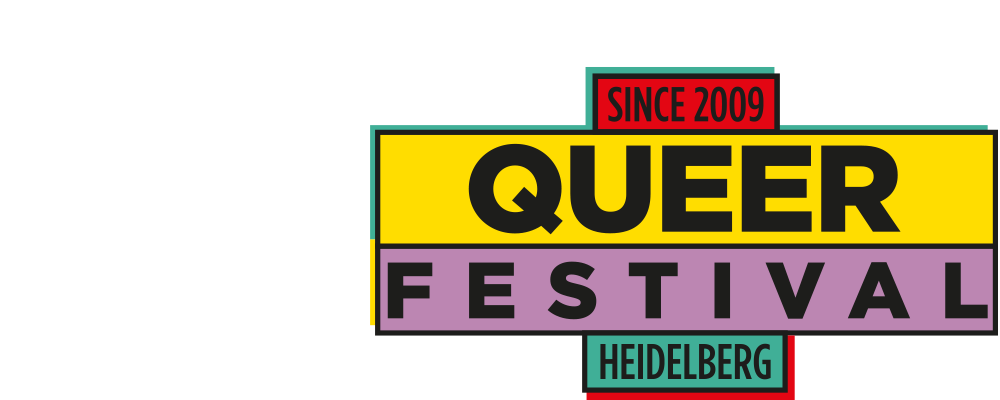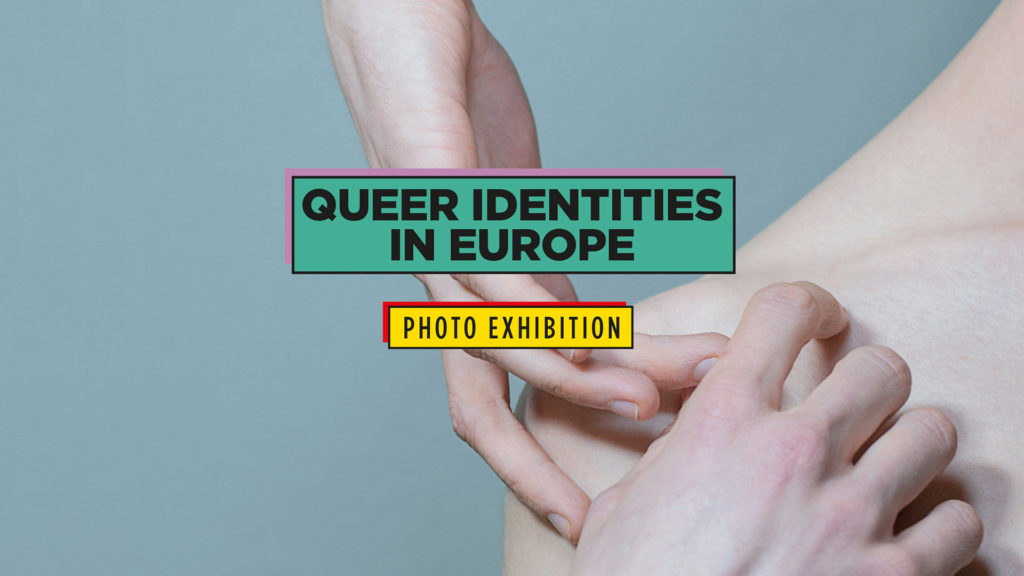
Queer Identities in Europe
Fotoausstellung zum 11. Queer Festival Heidelberg
Die diesjährige Ausstellung „Queer Identities in Europe“ zeigt fünf ausgewählte Fotoprojekte von Cansu Yildiran, Florian Hetz, Gabo Caruso, Dustin Thierry und Celine Yasemin Rolle.
Karlstorbahnhof | ab 03.05.2018
Die Ausstellung ist zu allen Veranstaltungen im Festivalzeitraum zugänglich. Die Vernissage im Karlstorbahnhof ist Teil des städtischen Empfangs. Eintritt frei.
Profi- und Amateurfotograf*innen waren in einem europaweiten Open Call aufgerufen ihre Fotos zum Thema einzureichen. Mit Unterstützung von Picter.com.
Gefördert durch das Ministerium für Soziales und Integration Baden-Württemberg im Rahmen des Aktionsjahrs 2019 ,,Für Akzeptanz & gleiche Rechte“
Cansu Yildiran (Istanbul, Turkey)
Cansu Yıldıran explores issues such as gender, cultural identity and discrimination. Since her series “The Dispossessed” which was based on the story of her family, she continues to work with sound, video and photography, mostly inspired by personal experience.
Titel: Shelter
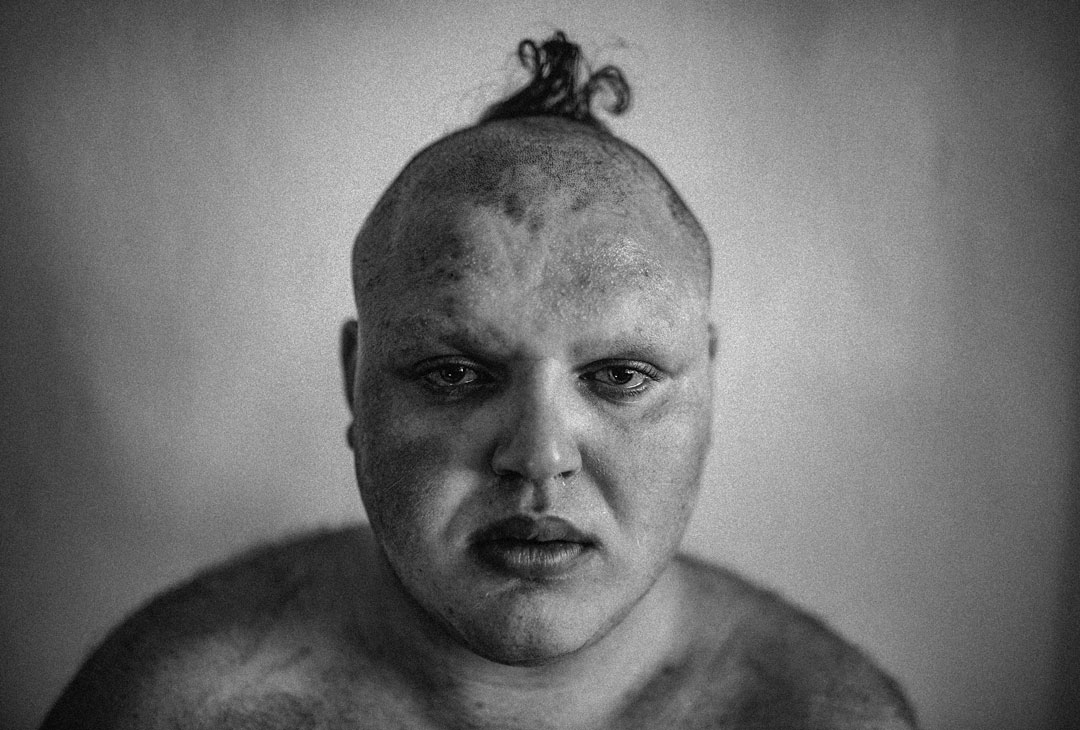
The geography where I am used to be considered to be the bridge between the East and the West up until a while ago. Now, it’s more Middle Eastern. I believe this was triggered because of post-2000s’ changing political climate as well as war and migration in the Middle East. These changes all coincided with the development and self-exploration of Generation Y which I am a part of. As this situation affect people’s living spaces, the development process which the Generation Y goes through is also affected. Those who belong to this generation grow up in a more conservative way in Central and Eastern Anatolia, while a whole different story goes on in the West. The west of the country has a diverse population because of heavy migration from the East that is caused by war and economic problems. Eventually this situation becomes a major factor in having an identity crisis for people of Generation Y in the West. Many people from different cultures and backgrounds migrate to the same place because of different social reasons to seek a new life by adapting to it. They carry their own backgrounds and culture with them to the place they migrate. They form a new life with the people they feel relevant to in terms of their own mindset, culture and identity. So, I wanted to talk about the stories of groups that were marginalized because of their sexual identities and lifestyles among the groups that could be counted as a community. One of the basic reasons for this is that I do feel as close to these communities as ways of thinking, feeling and living. From an external perspective, the most basic concern of these groups, which are considered as utopically ‚other‘, is to exist. The right-wing conservative lifestyle, which encroaches upon increasingly habitable areas, and the consequences of political power lead these groups and identities to further close in. There are many justifiable reasons for this, from subconscious to social alienation to lynching.
Florian Hetz (Berlin, Germany)
Florian Hetz started his professional career in opera and dance theatre in Germany. A severe encephalitis put an abrupt end to his professional life. In the process of returning to full health he picked up a camera to document daily life, in the form of a visual diary, to fight potential memory loss as part of the after-effects of the brain inflammation. From taking photos of his friends and lovers he eventually moved on to creating photos based on the imagery in his head. Much of Hetz’s work circles around the hidden memories of a pre-coming out time and intimacy. Memories of confusingly arousing moments, that many queer people experience at young ages without knowing how to read or act on them. By taking close ups of seemingly normal body parts and gestures, Hetz brings the focus to their highly sexual undertone. Like looking through a glory hole, Hetz only shows a fragment of the moment, and viewers are invited to create their own narrative.
Titel: Queer Portraits
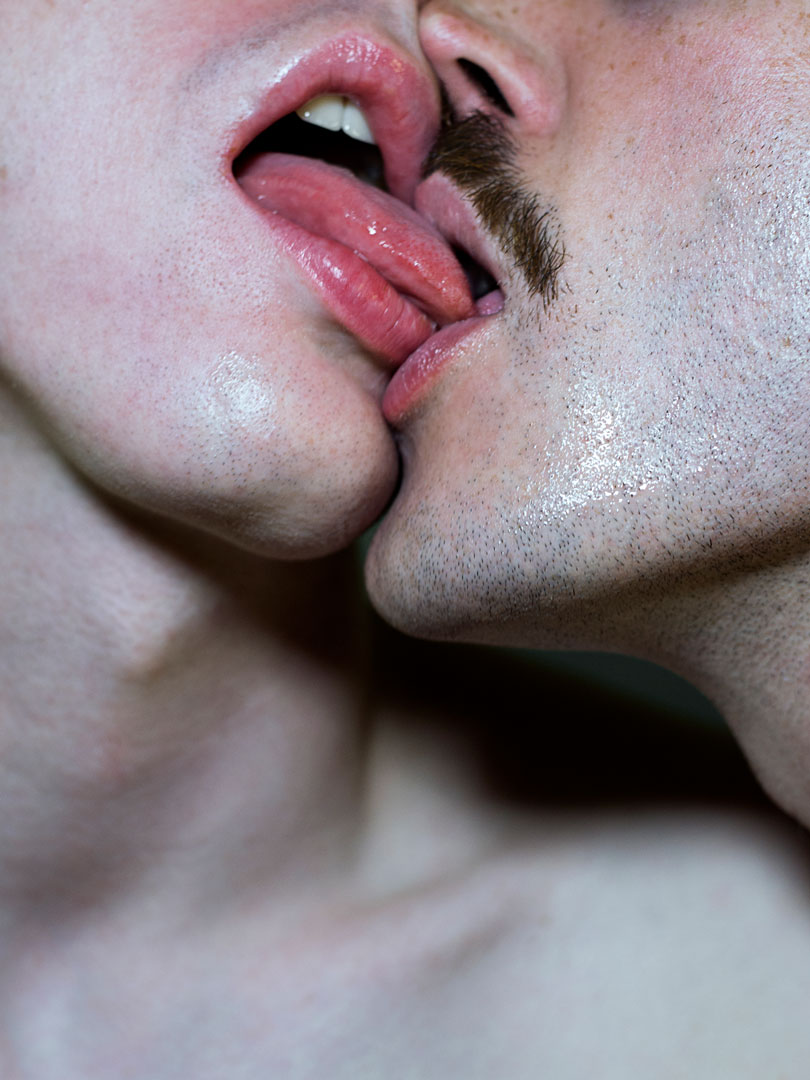
Portraits of the queer community and their sexuality in Berlin
Gabo Caruso (Barcelona, Spain)
María Gabriela Caruso Catsicaris, alias Gabo Caruso was born 1985 in the city of Buenos Aires. She studied photography at the Association of Professional Photographers of the Argentine Republic. In 2013 displayed her first individual work “Aesthetics of Nostalgia “ in the space of Camilanto. In 2014 she held a posttitle in curatorship and communication of art. In 2015 participated in a residence of art and technology taught by the National University of the Arts. That same year she studied “contemporary photography“ at the NODE CENTER. During 2014 and 2015 she participated in the work clinic meetings with the artist Gaby Messina. In 2016 she worked full in the project “The Post Odyssey, Elena sin hache“. In 2017 she received the second prize at the Alicante International Photography competition. In 2018 was selected for the Transeurope of PhotoAthenas, at the Onassis Cultural Center. In 2018 she studied postgraduate studies in photojournalism at the UAB (Autonomous University of Barcelona). Since 2018 she works on a project about being transgender in Barcelona.
Titel: Pink Dad
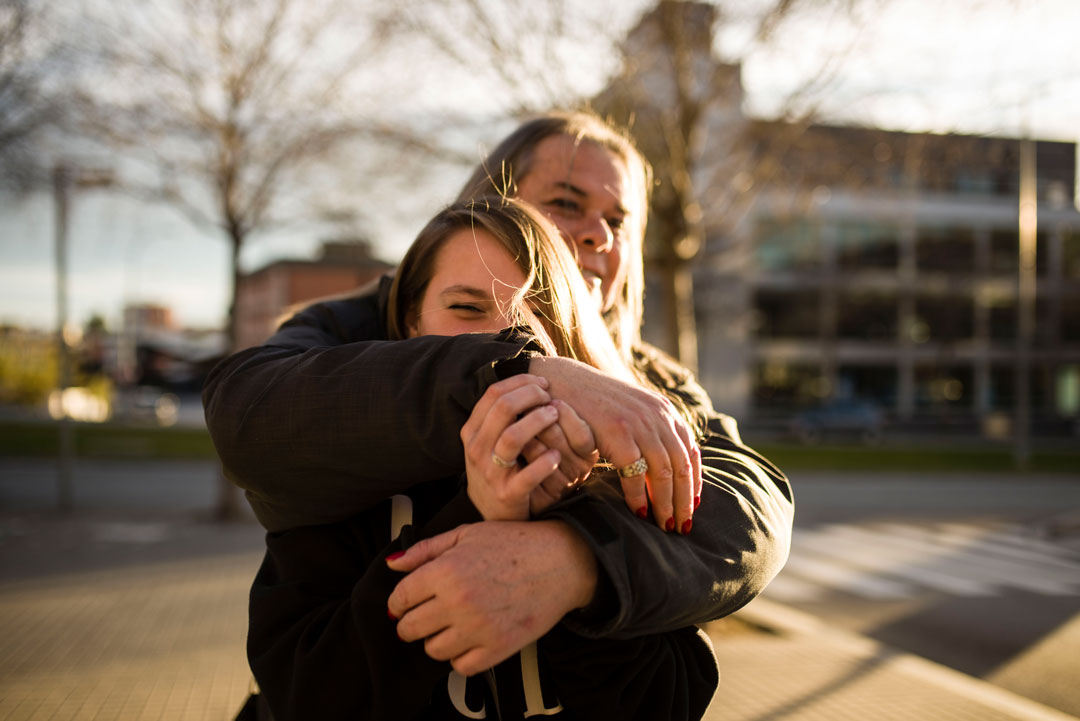
Rosa is 60 years old and two years ago, she told her daughter Annia that she felt like a woman. She did not lose her daughter. Annia is 15 years old, and two Christmases ago, her father stopped being Ramón to become Rosa. She did not lose her father. The relationship between them, challenges us as a society, breaking the stereotypes of family, and adult transsexuality linked to loneliness.
Dustin Thierry (Amsterdam, Netherlands)
He was born 1985 in Willemstad, Curaçao. As a self-taught photographer he is living and working in Amsterdam. Focusing on projects concerning African Caribbean identity. The issues Dustin Thierry addresses in his work are often as personal as they are social. He is fascinated by what drives people. As opinions and pictures fly around the world, Thierry tries to capture moments of stillness for reflection, his portraits being intimate encounters leaving the beholder with all the mental space needed to tickle their imagination. Thierry believes that every image comes into its own when given the time and attention it deserves.
Titel: Opulence
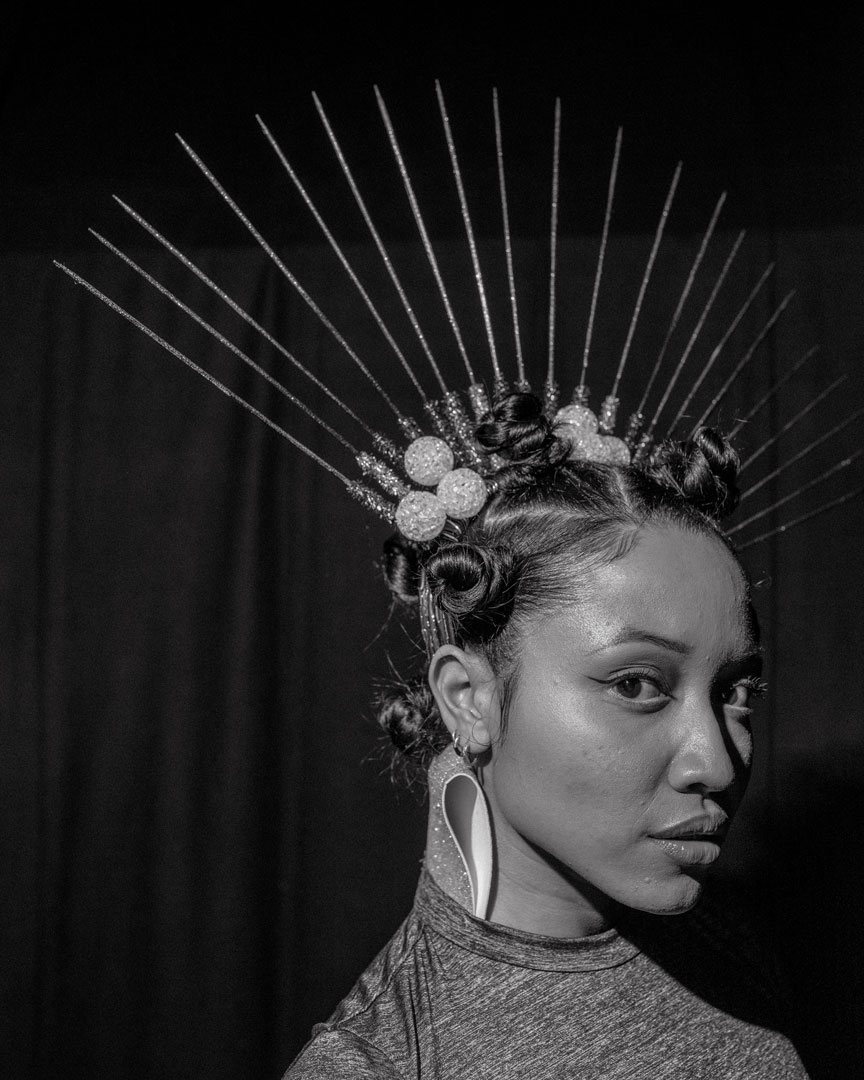
During the spring of 2018 I started documenting the ballroom voguing scene in Amsterdam, Berlin, Milan and Paris. ‘Families’ or ‘chapters’ organize vibrant meetings that offer emancipatory possibilities of expression that relate to gender and/or race issues in a trustworthy environment where fashion and attitude mix with mutual understanding. Being honest and sincere I managed to gain access to this world of wonderful and sensitive people, avoiding fears of exploitation by the sensational approach of mainstream media. The black and white photography refers to the urban underground atmosphere of the previous century. My current project ‘Opulence’ (WIP) is an ode to my late brother and all people from Afro-Caribbean descent, that still are not free to live and express their sexuality to their fullest. To this day homosexuality is strongly stigmatized and condemned within the Caribbean community. Also, black people from the former colonies and the Caribbean islands in the Netherlands are increasingly racialised and objectified. This project seeks to break out of this dichotomy by portraying these subjects in unadorned, raw yet graceful portraits. The project records my attempt to build a living archive of feelings, gender expressions and LGBTQ identities of the Black Caribbean diaspora in the Netherlands as a testimony of the vitality and longevity of the Black LGBTQ community in The Netherlands and the Caribbean.
Celine Yasemin Rolle (Dortmund, Germany)
Celine Yasemin is a 24 years old photographer from Germany currently studying photography at the University of Applied Sciences and Arts in Dortmund. Last year she made an exchange to study in Arles at the ENSP for two semesters. Her photographic focus is based on portrait and fashion photography, which she tries to combine with documentary photography.
Titel: 21 Gram
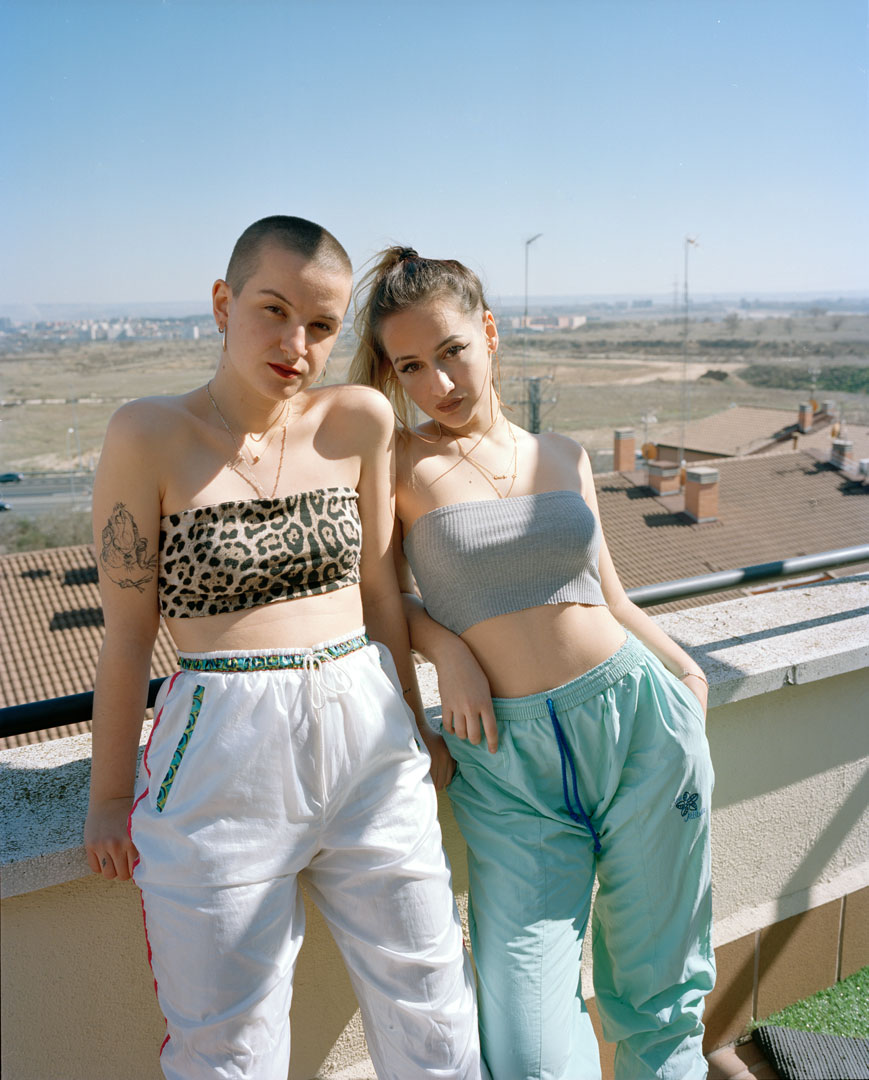
I started that project, when I was in France last year. Because of some homophobic attacks in Arles that summer, the theme of LGBT and Queer rights was getting more important in the city. In my work I mostly met people in France who call themselves queer. By asking myself the questions what queer means, I was starting to develop a project about the question how people feel in their own bodies.
